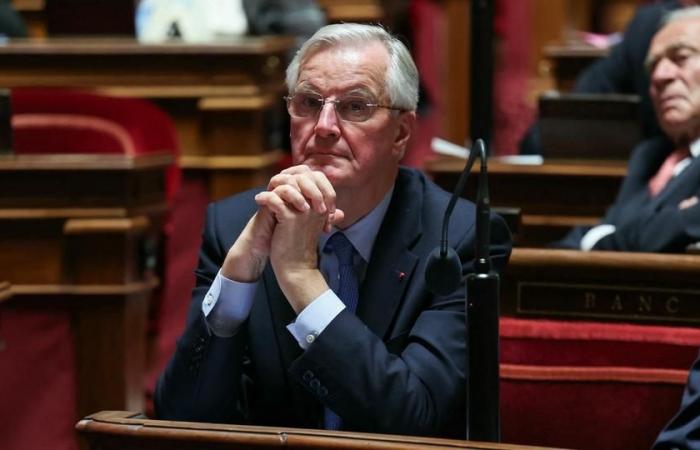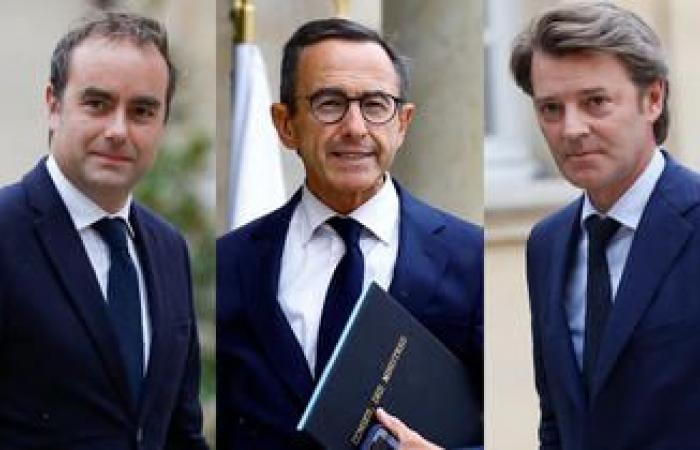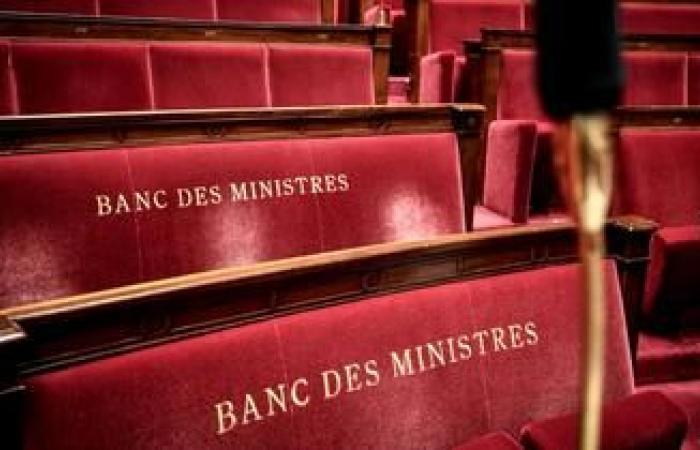While Michel Barnier must present his resignation after the vote on a motion of censure following his forceful passage of the Social Security budget, France now finds itself in an unprecedented situation and is heading towards an uncertain political and budgetary future.
It was expected, it is now done: the motion of censure tabled by the New Popular Front was adopted with 331 votes, or 43 more than the absolute majority of 288 votes which was required for its adoption. The Prime Minister and his government team must now submit their resignation.
The government’s budget was definitively rejected, plunging France into an unprecedented situation, where even the Constitution was of no help. Indeed, a legal vacuum surrounds the organic law relating to finance laws (LOLF) in the specific case where parliamentarians persist in not adopting the text.
Appoint a new Prime Minister
Emmanuel Macron’s first mission is now to know who to appoint at Matignon, to replace Michel Barnier. If the president seems to dismiss the hypothesis of a left-wing personality, despite the first place of the New Popular Front in the legislative elections, a Prime Minister too right-wing would for his part be censored by the NFP, accompanied by the left wing of the Macronist camp. A Prime Minister from the common base would only reproduce the current situation.
There remains the option of a technical government. Concretely, Emmanuel Macron could appoint a government composed solely of senior civil servants and experts without partisan label, recognized solely for their skills or their functions. They would be responsible for current affairs pending a new dissolution of the National Assembly, which can only be possible from July 2025, or a new presidential election.
But even with this option, the question of France’s budget remains deeply uncertain. And for good reason: given the deadlines imposed by the Constitution, it seems very unlikely that the new government, if it was not censored as soon as it was appointed, would have the time to propose a project that could suit a majority of deputies.
what future for the budget and for France?
In the Constitution, only one scenario is presented: that where Parliament would have failed to decide on the finance bill within 70 days, after its tabling, or 50 days in the case of a finance law. financing of Social Security. In this specific case, according to article 47 of the Constitution, the government must implement its provisions by ordinance. But in this case, if Parliament rejects the text, even via a motion of censure, it speaks out. The provision is therefore inapplicable.
In the current situation, it is therefore likely that the new government formed following the motion of censure will table a new finance bill outside the deadlines imposed by the Constitution, i.e. after December 31. In this case, the rest of article 47 of the Constitution intervenes: “If the finance law fixing the resources and expenses for a financial year has not been filed in time to be promulgated before the start of this financial year , the government urgently requests authorization from Parliament to collect taxes and opens by decree the appropriations relating to voted services,” details the text.
In this scenario, according to the LOLF, two paths are possible: either the government must request a vote from the National Assembly on the first part of the finance law relating to taxes, and finds itself at the mercy of its verdict. Either he first submits, before December 19, a draft “special law” authorizing him to continue to collect existing taxes until the final vote on the new finance law. After obtaining the green light on the tax component through one of the two means, the government can then issue decrees for the expenditure component.
However, the LOLF specifies that the decrees are provisional and that the approval of Parliament is always necessary, in the long term, in order to be able to collect the tax. The LOLF also specifies that in its content, a special law cannot contain new tax revenue. It must only refer to the previous budget.
But even in these conditions, a new unfavorable vote by deputies could lead to the rejection of the special law, and therefore of the new budget. The government would therefore find itself without any possibility of levying taxes or planning new expenditure on January 1, 2025. An untenable situation, particularly since in a France without a budget, civil servants would no longer be paid.
Full powers for the president
Therefore, only one solution seems to be envisaged by constitutionalists: that of recourse to article 16 of the Constitution, the one which confers exceptional powers to the President of the Republic. This article 16 can be triggered if “the institutions of the Republic, the independence of the Nation, the integrity of its territory or the execution of its international commitments are threatened in a serious and immediate manner and the regular functioning of the constitutional public powers are interrupted,” states the Constitution.
If this article was created for war conditions, it could be applied in this scenario. Emmanuel Macron could thus impose the functioning of the State until parliamentarians reach an agreement. Public services could operate and taxes would be collected. However, after thirty days of exercise of exceptional powers, the Constitutional Council may be contacted by the President of the National Assembly, the President of the Senate, or 60 parliamentarians, to verify whether the conditions of application of this article are still met. .
“notion of continuity of national life”
So far, the Fifth Republic has only experienced two small “accidents” in terms of parliamentary procedure for the adoption of the budget. Each time it was only a question of the calendar and the government always got through it thanks to an agreement by the deputies. This year, in the event of persistent rejection, the government may also refer to a text adopted in 1980 in a similar situation, and validated by the Constitutional Council in the name of the “notion of continuity of national life”.
![Cette solution, si elle était mise en place, permettrait d'assurer la bonne marche du pays. [STEPHANE DE SAKUTIN / AFP]](https://euro.dayfr.com/content/uploads/2024/12/04/c3c87289ff.jpg)
![Cette solution, si elle était mise en place, permettrait d'assurer la bonne marche du pays. [STEPHANE DE SAKUTIN / AFP]](https://locals.dayfr.cam/wp-content/uploads/2024/12/1733343128_223_what-scenario-after-the-final-rejection-of-the-budget-and.jpg)
In 2001, this case law was integrated into the organic law relating to finance laws (LOLF). This notion could thus be central in future debates to prevent France from falling into complete paralysis and heading towards a potential financial crisis.








